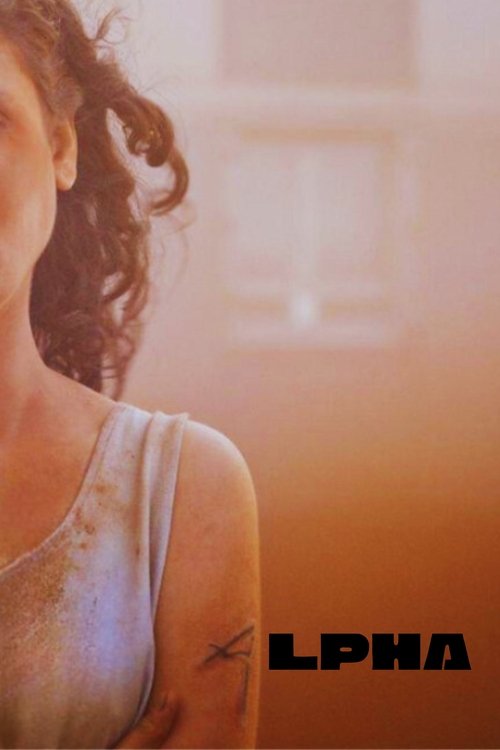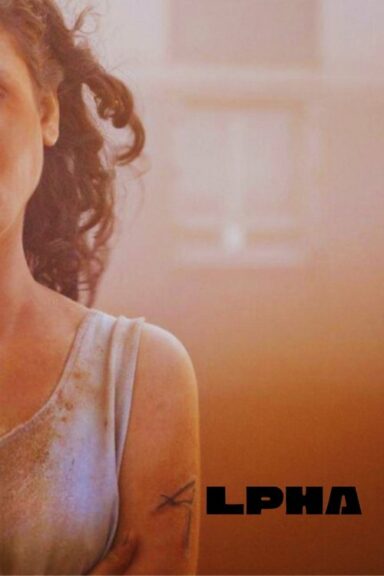
A film by Julia Ducournau
With: Mélissa Boros, Emma Mackey, Golshifteh Farahani, Tahar Rahim, Finnegan Oldfield, Jean-Charles Clichet, Christophe Perez, Louai El Amrousy, Ambrine Trigo Ouaked, Fabien Giameluca
Alpha, 13, is a troubled teenager who lives alone with her mother. Their world comes crashing down the day she comes home from school with a tattoo on her arm.
Our rate: ***
Alpha, Julia Ducournau‘s new film following Raw and her Palme d’Or win with Titane, is surprising. Artistically and conceptually, the French director takes the risk of not satisfying part of her fan base. Alpha marks a turning point or a step aside in her filmography, even if it means trying to appeal to a new audience of critics and film lovers… It is constructed almost as a mirror image of Titane, dealing with numerous themes through musical narration based on sensation, and the decision to make us experience a slice of life through the prism of the gaze, but also the sensations of a young girl within a family, itself representative of a society where love reigns but struggles to heal the ills that plague it and are passed down from generation to generation. The use of special effects contrasts sharply with Titane; they are no longer present for the sake of being present, or to evoke a particular filmmaker who may have influenced Ducournau. They are few and far between and sometimes lack precision in their execution—the transformation of people into marble does not work completely, one might say. But by freeing herself from this goal of formal technical excellence, Julia Ducournau refocuses on her script, which is much more intimate, sincere, and elaborate; she relies on an interesting narrative technique, a central subject multiplied in its different themes, convincing performances from the entire cast, from Mélissa Boros to Golshifteh Farahani and Tahar Rahim, who, in the early moments of the film, we might have feared would fail to convey his character’s unease (in other eras, this role would have been perfectly suited to Patrick Dewaere or Pierre Clementi) and finally evokes a musical and soundscape that perfectly matches the atmosphere of the 1990s as she experienced it and seeks to convey here. Above all, she deliberately distances herself from any codification of genre style, offering us a drama, a passionate reflection, but also an intimate postcard that oscillates between her gaze toward the past and, through the allegorical scope of the narrative, toward our own era. The opposite of a mashup of references, rejecting a psychoanalytical perspective (preferring a sensory, even mystical reading), the film focuses on a particular intimacy, that of Alpha, and does so with tact and sincerity. The dystopian setting serves as a metaphysical backdrop (as in Laxe‘s work) and is not the real subject, just a symbolic context, a clue. This cinematic undertaking is far removed from the canons of films that dealt with the AIDS epidemic in France in the 1990s, or a little later (from the young French cinema of the 1990s and its disillusionment, to Savage Nights and its search for fury, for life in the face of death). The cinematic gesture is perhaps closer to a cinema at the crossroads of different authors who have used science fiction to give us a glimpse of their perspective, their dismay, or their observations on the era and humanity, from Danny Boyle to Abel Ferrara, via David Mackenzie and Alex Garland, while remaining resolutely very distant from them. With Alpha, by slipping in a few subtle nods to Edgar Allan Poe, Ducournau talks to us about AIDS, love, matriarchy, Berber traditions, families, trauma, addiction, palliative care, demons (both internal and external, brought by the red wind), adolescence, mourning, relationships with sexuality, harassment, rejection, exclusionary glances, and Julia Ducournau herself. But shhh, we didn’t tell you that.

